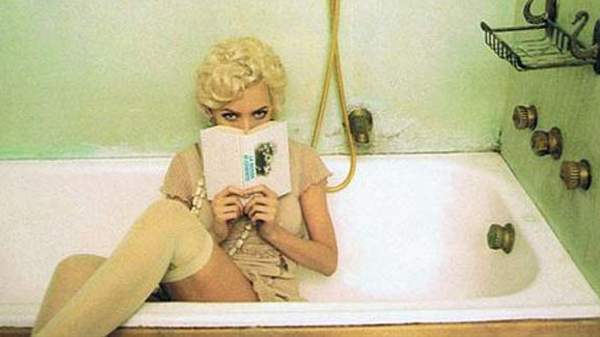Overview
If you cast your mind back far enough, you might be able to remember a time when Tazos, Gameboys and the temperamental Tamagotchi reigned supreme, when a sherbet bomb or a Spice Girls playing card was the most respected form of social currency, the term 'apple' still referred to a fruit, bucket hats were cool in a non-ironic way and, most importantly, reading was exciting. It was an illicit and novel (mind the pun) activity, best carried out with the aid of a night light or torch after 8.30pm on a school night. It seemed the most pressing matter in the world was knowing what happened The Day My Bum Went Psycho and Andy Griffiths was the only one with the power to tell you, one five-page, giant-font-sized chapter at a time. No Mum, this could not wait until tomorrow morning.
When the lunch orders, political games of four square and designated readers of primary school gave way to the cafeteria, MSN and condom-on-banana era of high school, English class filled the book-shaped void of childhood for many. If, like me, you were lucky enough to be graced by a literature teacher with an uncanny physical and temperamental resemblance to Miss Honey (if you don't get that reference, you’re reading the wrong article), a lifelong love of books was at this point cemented, as definitive as carefully scripted calligraphy on paper, preferably penned with the aid of a feather and pot of ink.
As an adult sans parents, you are free to stay up as late as you want, poring over Hemingway, Bronte, Austen and… E.L. James. The only problem is, beyond a questionable internet forum of Pride and Prejudice enthusiasts who like to discuss Mr Darcy via webcam whilst simultaneously coiling their hair in rags to get into character (this is a very real phenomenon), it is difficult to find likeminded individuals with whom you can debate and pick apart the bitter lows and dizzying heights of your favourite protagonists before assigning each fictional character to a member of your friendship group and yourself. (Duh, of course you're Jane Eyre, except way prettier.) Enter the book club — not half as cringe worthy as a knitting group, less tragic than ballet classes for grown ups and offering similar potential for romance as speed dating, minus the unmistakeable whiff of desperation, they might just be the next big nostalgic hipster trend. You heard it here first.
Courtesy of Laneway Learning's Book Club for Beginners class, led by self-confessed book nut Nicola (this woman once faked the death of a book club before reforming it, sans underperforming members, read: book clubs are her crack), here are the most important things to remember when starting, or attending, the intellectual's equivalent of the discotheque.
- Read the book — this one seems obvious, but in the excitement of choosing which spectacles to wear and what snack to bring in order to show everyone else up, it is often overlooked. Sparknotes don’t count. You’re only cheating yourself.
- Don't talk too much, nor too little. Just like Goldilocks, it's important to find the right balance between assuming the role of annoying know it all, unnecessarily referencing vaguely relevant high-literature to assert your intellect and the dreaded mute, offering nothing but unrelated everyday banter that has no place in book club. Which is a more serious offence, I cannot decide.
- If you're organising the book club, now is the time assume dictator-like authority. Book club is not a democracy — the instigator has the final word on location, reading list, members and snacks. The only thing up for discussion is the actual text and if you choose the right books, that should be more than enough to handle. Nicola regaled us with her one recorded observation of a book to the face — choose your members wisely, preferably without a history of violent paper-related assault, or it might not be the last.
- To theme or not to theme? This really is the eternal question. Opting to do so allows one to narrow down membership based on shared interest, whilst opening up the reading list to eclectic liquorice all-sorts exponentially increases the chance of discovering untapped passions, in the kind of magical way that can only take place from the comfort of one's lounge room, cup of Milo and paperback in hand. If you do decide to theme, examples include 'Dystopian' (1984 by George Orwell, Brave New World by Aldous Huxley and, The Passage by Justin Cronin), a theme which lends itself well to aluminium foil costumes and space cakes for afters, or my personal favourite, 'Mad Women' (The Yellow Wallpaper by Charlotte Perkins Gilman, The Bell Jar by Sylvia Plath and Wide Sargasso Sea by Jean Rhys). That one's best served with a side of your head in the oven.
- The last and most important rule of book club? You don't talk about book club. Because, well, they'll never understand.
Image via hotgirlsreadingbooks.tumblr.com
